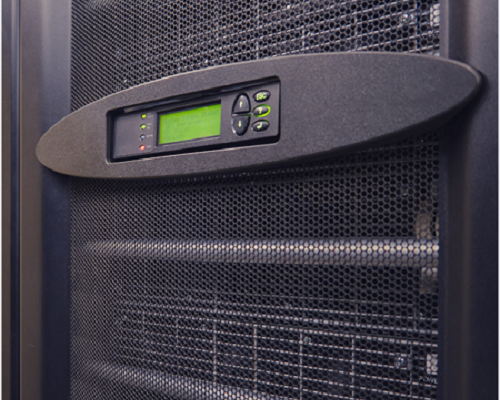In today’s digital age, data centres play a crucial role in storing and processing vast information. For data centre operators in Singapore, ensuring uninterrupted power supply is a top priority. This article delves into the choice between Uninterruptible Power Supply (UPS) systems and backup generators to meet the power needs of data centres in the Lion City.
The Power Dilemma in Data Centre Singapore
Singapore, a major tech hub, has many data centres that help businesses like banks and online stores. These places are essential for modern businesses and having a steady power supply is super important.
When the power goes out, it can result in data loss, computer problems, and financial setbacks. To prevent these issues, data centre operators must choose between two main options: Uninterruptible Power Supply (UPS) systems and backup generators. Both options have their pros and cons, and the decision depends on the data centre’s needs and budget.
Understanding Uninterruptible Power Supply (UPS) Systems
UPS systems are a go-to choice for data centres worldwide, including those in Singapore. They’re like power bodyguards, keeping the electricity flowing to essential equipment so things stay on track during brief power blips or voltage hiccups. Think of them as the middleman between the primary power source and your data centre gear, stepping in when there’s a power hiccup.
The key benefits of UPS systems include:
- Instantaneous Power Protection: UPS systems can respond within milliseconds to a power outage, offering immediate protection to connected devices. It is particularly important in data centres, where even a momentary loss of power can lead to significant data corruption or service disruption.
- Conditioning and Filtering: UPS units also provide power conditioning and filtering, ensuring that the electricity supplied to the data centre equipment is free from voltage sags, surges, or harmonics. It helps in prolonging the lifespan of sensitive IT equipment.
- Scalability: Data centres in Singapore may require flexible solutions as they expand. UPS systems can be easily scaled to accommodate growing power demands.
- Reduced Environmental Impact: UPS systems are energy-efficient, reducing their environmental footprint when compared to backup generators. It aligns with Singapore’s focus on sustainability and environmental responsibility.
However, UPS systems are not without their limitations. They are designed to provide power for a limited duration, often between 5 to 30 minutes. While this is sufficient for short outages and for initiating backup power sources, it may not be enough to support data centre operations during extended power disruptions.
Backup Generators: A Reliable Power Source
Backup generators are an alternative solution for data centres in Singapore. Backup generators, often powered by diesel or natural gas, can support data centre operations for hours or even days during power outages.
The benefits of using backup generators include:
- Extended Runtime: Backup generators can provide power for a much longer duration compared to UPS systems, making them ideal for data centres that need to weather prolonged outages or fuel supply disruptions.
- No Battery Degradation: Unlike UPS systems, backup generators do not rely on batteries that degrade over time. It makes them a more durable and dependable option in the long run.
- Lower Operational Costs: Backup generators can cost more upfront, but they usually have lower ongoing expenses, especially with frequent power outages that quickly drain UPS batteries.
- Higher Power Capacity: Backup generators can support higher power loads, making them suitable for larger data centres with more extensive equipment arrays.
Despite these advantages, backup generators come with some notable drawbacks. These include longer startup times (often several minutes), environmental concerns related to emissions, and the need for regular maintenance, fuel storage, and noise management.
The Right Choice for Data Centre Singapore
So, which option is better for data centres in Singapore? The answer depends on various factors, including the specific operational needs and budget constraints of the facility.
For smaller data centres or those that require seamless, near-instantaneous power protection, UPS systems may be the preferred choice. They are efficient and effective at handling short-term outages, and they can be combined with backup generators for redundancy.
On the other hand, larger data centres or those located in areas prone to extended power disruptions may benefit more from backup generators. These generators offer the extended runtime necessary to ride out prolonged outages and can serve as the primary power source, with UPS systems providing immediate protection during switchover.
In some cases, a hybrid approach combining UPS systems and backup generators may be the most robust solution. This configuration ensures that data centre operations remain uninterrupted during short outages, while backup generators kick in to provide long-term power when needed.
In Conclusion
The choice between UPS systems and backup generators for data centres in Singapore should be based on a careful assessment of operational requirements, budget constraints, and environmental considerations. Both options have their merits, and selecting the right one is essential to ensure the seamless operation of data centres in this tech-savvy nation. Data centre operators in Singapore must weigh the benefits and drawbacks of each solution to make an informed decision that aligns with their business objectives and environmental responsibilities.
For more information about data centres in Singapore, contact Canatec!














Comments